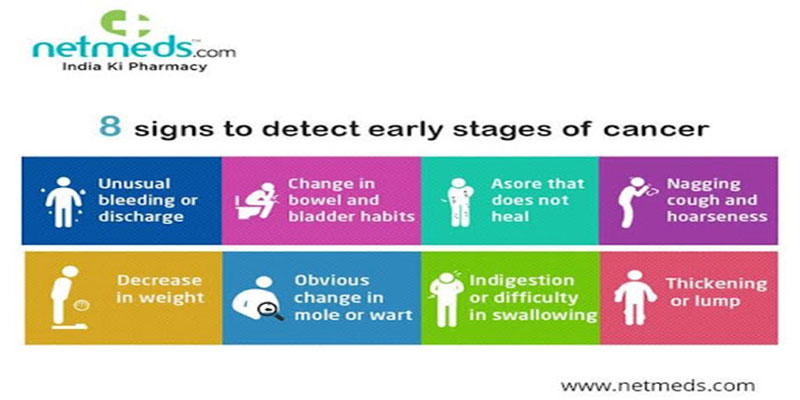Cancer, while often daunting to confront, can be more effectively managed and treated when detected early. Yet, many warning signs can go unnoticed or be mistaken for benign ailments. Understanding and recognizing these signs are crucial steps in ensuring the timely diagnosis and intervention. To help you navigate this terrain, we present the “CAUTIOND” mnemonic a simple guide to identifying potential indicators of cancer.

C – Change in bowel or bladder habits:
Pay attention to any significant changes in your bowel movements or urination patterns. Persistent diarrhea or constipation, blood in stool or urine, and frequent urges to urinate may signify underlying issues that warrant medical attention.
A – A sore throat does not heal:
While occasional sore throats are common, a persistent sore throat that doesn’t improve with time or treatment could be a cause for concern. This is particularly important if accompanied by difficulty swallowing or persistent hoarseness.
U – Unusual bleeding or discharge:
Any unexplained bleeding or discharge from the body should be investigated further. This includes blood in cough, vomit, urine, or stool, as well as abnormal vaginal bleeding or discharge.
T – Thickening or lump in breast or elsewhere:
Regular self-examinations are essential for both men and women. Noticeable lumps or thickening in the breast or elsewhere in the body should be evaluated promptly by a healthcare professional.
I – Indigestion or difficulty in swallowing:
Persistent indigestion, difficulty swallowing, or feeling like food is getting stuck in the throat may indicate issues with the digestive tract that require medical attention. These symptoms can sometimes be associated with cancers of the esophagus or stomach.
O – Obvious Change in wart or mole:
Keep an eye on any changes in the size, shape, colour, or texture of moles or skin lesions. New growths or changes in existing ones should be examined by a dermatologist, as they could be signs of skin cancer.
N – Nagging cough or hoarseness:
A persistent cough or hoarseness that lasts for more than a few weeks, especially if accompanied by coughing up blood, should be evaluated by a healthcare professional. These symptoms can be indicative of respiratory or throat cancers.
D-Decreased Weight
A loss of appetite and weight loss of approximately about 10 pounds, due to unknown reasons, could be a sign of pancreas, stomach, oesophagus and lung cancer.
5 Effective Ways to Prevent Cancer:
- Follow A Balanced Diet
- Avoid Tobacco Consumption
- Exercise Every Day
- Go For Regular Health Check-Ups
- Stay Away from Harsh Sunlight
Conclusion:
Recognizing the warning signs of cancer is the first step towards early detection and effective treatment. While these symptoms do not always indicate cancer, they should never be ignored. If you experience any of the “CAUTIOND” signs or other persistent symptoms that concern you, it’s essential to consult with a family doctor promptly. Regular screenings and maintaining open communication with your doctor can significantly improve your chances of detecting cancer at an early, more treatable stage. Remember, early detection saves lives.
